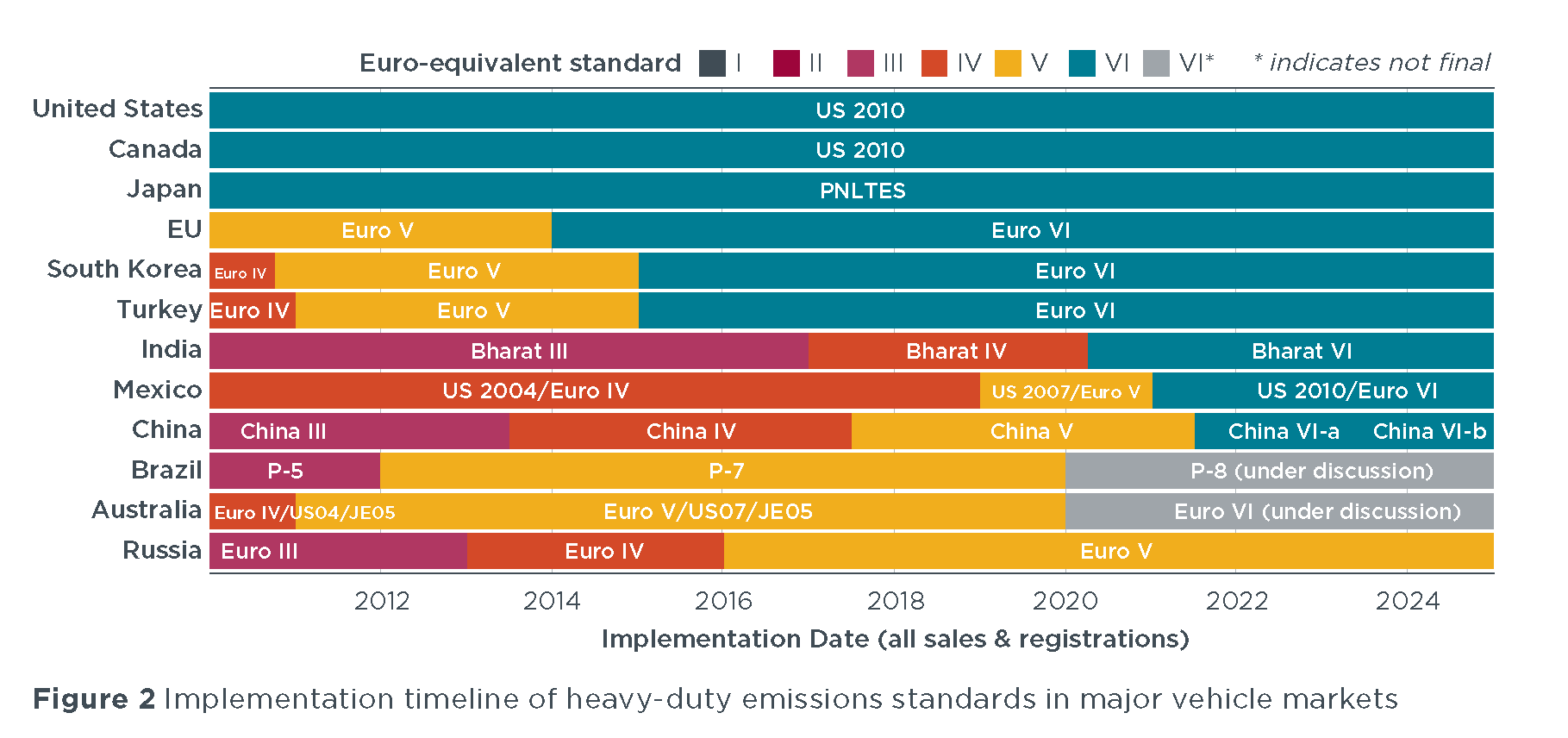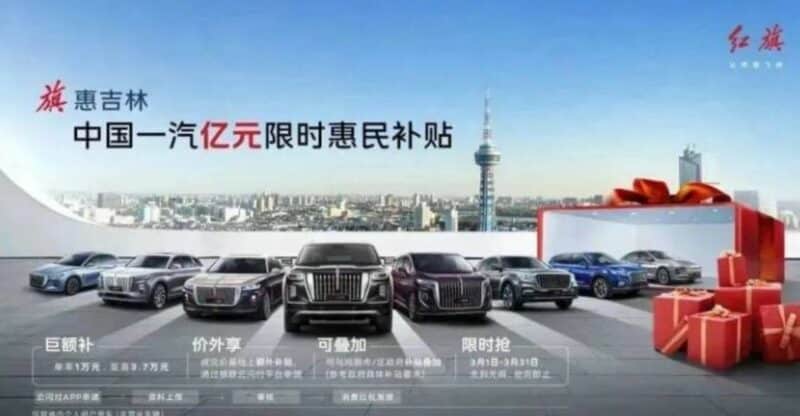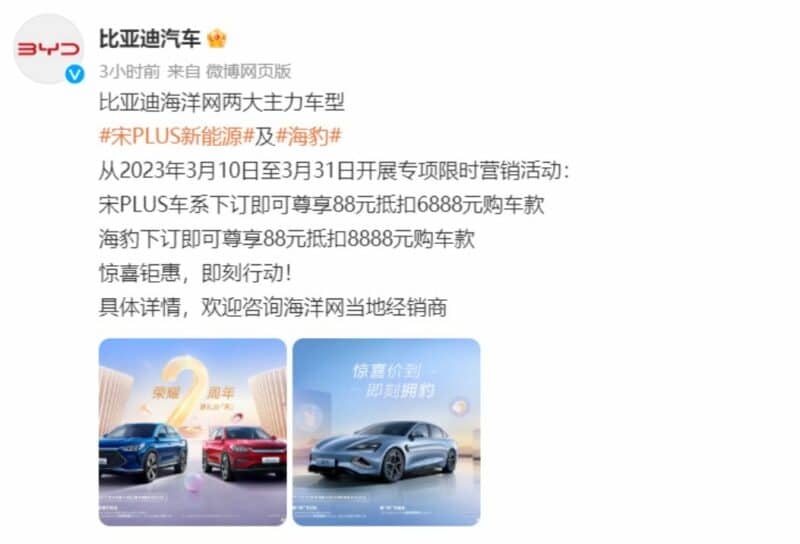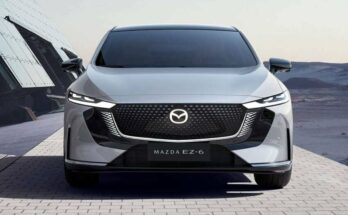The Chinese vehicle market’s pricing war is intensifying, with big players such as BYD, FAW, and Chery joining the fray. Before this, at least 30 automotive brands already joined this price war which includes leading names such as BMW, Mercedes-Benz, Audi, Tesla, Chevrolet, Volvo, Nissan, Volkswagen, and Toyota.
To encourage consumer spending on automobiles, Chinese automakers, dealers, and local governments have banded together to explore ways to reduce prices. The discounts in addition to price reductions on direct purchases, come in the shape of gift packages, cash credits, as well as insurance subsidies.
Related: Toyota: Buy One Get One Free in China
Now from March 10th to March 31st, BYD is offering a special limited-time promotion for its major models: ordering the BYD Song Plus model for only 88 yuan will get a 6888 yuan ($1,000) discount.
Various Chinese automakers offering huge discounts
Chery then announced a price reduction for its Chery, Exeed, Jetour, and New Energy brands in order to increase automotive consumption and the development of the automobile industry. Chery brand vehicles, in particular, enjoy an official discount ranging from 10,000 to 31,000 yuan ($1,400 to $4,400). The official discount for the Chery Arrizo 8 is 19,000 yuan, while the discount for the Chery Tiggo 8 Plus is 31,000 yuan.
Related: Angry Tesla Owners Protest Against Surprise Price Cuts in China
In the Jilin Province, FAW recently began a price reduction campaign with 100 million RMB (14.5 million USD) in subsidies from March 1 through March 31. Passenger vehicles and light trucks sold by FAW-Hongqi, FAW-Jiefang, FAW-Bestune, FAW-Volkswagen, and FAW-Toyota are included in the scope of subsidies. The subsidy amount ranges from 5,000 yuan ($720) to 37,000 yuan ($5,350) depending on the car type and purchase price.
Reasons behind the price-slashing war in China
First and the foremost reason is the upcoming implementation of the new stringent China VI-B emission standards. According to Cui Dongshu, the Secretary General of the Passenger Car Association of China, the drastic price cuts by car companies are closely related to the inventory clearance of China VI-A compliant models. From 1st July 2023, cars that are not compatible with the China VI-B standards cannot be sold, registered, or even licensed.

Then there are other factors playing into effect too. For example, the impact of rising sales of new energy vehicles (NEVs) in China— that has resulted in up to 20% decline in sales of ICE vehicles during 2022 in the Chinese market. But this price war intensified when makers of NEVs started to offer discounts late last year.
Related: Mercedes Cuts EQE and EQS Sedan Prices in China by $33K
According to analysts, if production and sales are too low, the production lines will be unable to operate at the designated capacity. As a result, in order to continue factory operations, it is important to lower prices in order to attract orders, which is a frequent strategy adopted by second and third-tier automakers. If a car manufacturer closes down for an extended period of time, its supply chain will gradually fail, ultimately resulting in the company’s demise.

A computer animation professional with over 23 years of industry experience having served in leading organizations, TV channels & production facilities in Pakistan. An avid car enthusiast and petrolhead with an affection to deliver quality content to help shape opinions. Formerly written for PakWheels as well as major publications including Dawn. Founder of CarSpiritPK.com








